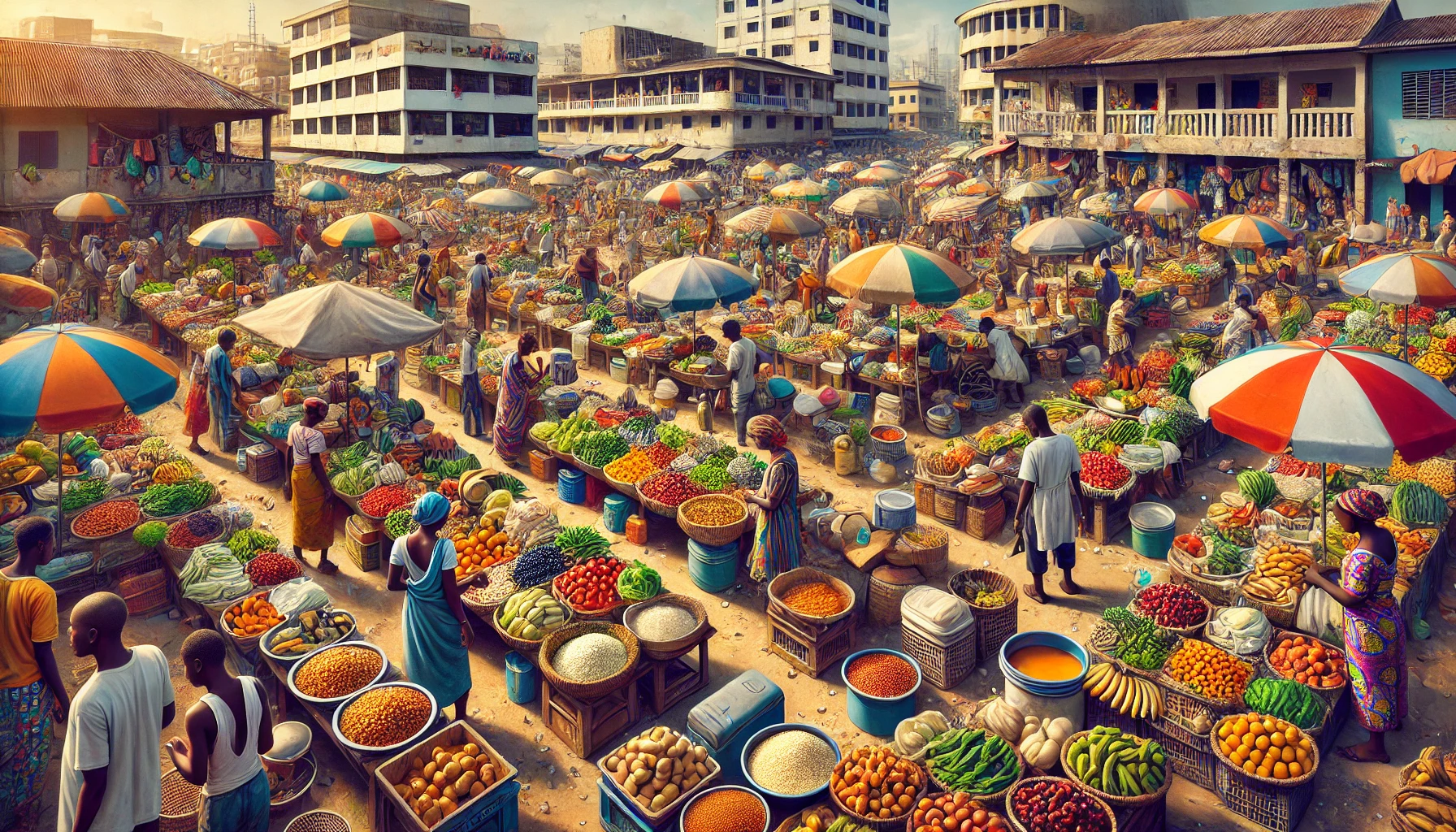Govt Ensures Stable Prices and Availability of Essential Food Commodities with Strategic Measures in 2024
India's Robust Efforts to Tackle Inflation and Ensure Affordable Food: Increased Production, Strategic Imports, and Supportive Policies.

- Country:
- India
The Government of India has implemented a range of strategic initiatives to ensure the affordability and availability of essential food commodities, navigating several challenges in 2024. These efforts were key to managing the retail inflation rate, which significantly decreased to 5.22% in December 2024 from its peak of 6.21% in October 2024. The food inflation rate also moderated, falling from 10.87% in October to 8.39% in December.
The production of pulses and onions in 2024-25 is expected to increase significantly, thanks to favorable monsoon rains and optimal weather conditions. Tur production is forecast to reach 35.02 LMT, up by 2.5% compared to 34.17 LMT last year. The Department of Agriculture and Farmers Welfare has sanctioned procurement of Tur for the current marketing season, while production of Chana and Masur is also anticipated to be robust due to favorable sowing conditions. Additionally, Kharif Moong production is estimated at 13.83 LMT, reflecting a 20% increase over the previous year's production of 11.54 LMT.
The onion sector also shows promise, with higher sowing of both Kharif and Late Kharif onions expected to result in good production levels. Similarly, the Rabi onion sowing is progressing well, and favorable climatic conditions are boosting potato production, offering optimism for the overall food supply.
Retail Inflation and Food Prices in 2024
December 2024 marked a significant decrease in retail inflation to 5.22%, largely driven by favorable conditions in the food sector. The average retail inflation rate for 2024 stood at 4.95%, a marked improvement from 5.65% in 2023 and 6.69% in 2022. This reduction in inflation reflects the government's effective food price management despite external challenges.
In addition to the global supply chain disruptions and climate impact from the El Niño phenomenon, India faced difficulties in 2023-24, including a 20% decline in onion production and a 5% decrease in potato production. This led to a surge in prices for these commodities, requiring prompt action from the government to stabilize the market.
Government Response to Supply Challenges
The government took several timely steps to ensure food security, price stability, and support to both consumers and farmers. Key measures included:
-
Incentivizing Pulses Production: The government removed procurement limits under the Price Support Scheme (PSS) for pulses like Tur, Urad, and Masur to ensure 100% procurement at Minimum Support Price (MSP) during 2024-25. Additionally, the National Cooperative Consumer Federation (NCCF) and National Agricultural Cooperative Marketing Federation (NAFED) initiated pre-registration of farmers for assured procurement and provided seeds and awareness programs in non-traditional pulses-growing areas.
-
Duty-Free Import Policy: To ensure the availability of pulses, the government extended the duty-free import policy for Tur, Urad, and Masur until March 31, 2025, and allowed the duty-free import of Yellow Peas until February 20, 2025. Similarly, Chana imports were allowed duty-free from May 2024 to March 2025. These imports aimed to supplement domestic production, stabilize prices, and ensure food security.
-
Onion Procurement and Buffer Stocks: In response to the shortfall in onion production, the government procured 4.7 LMT of Rabi onions for the buffer stock. The procurement price of Rs. 2,833 per quintal was higher than the previous year, benefiting onion farmers. The onions from this buffer stock were released from September to December 2024 through retail outlets and mobile vans at a price of Rs. 35 per kg to make onions more affordable for consumers.
-
Export Control Measures for Onion: The government also adjusted its onion export policy in response to the production shortfall. Onion exports were prohibited from December 8, 2023, to May 3, 2024, then permitted with a Minimum Export Price (MEP) of USD 550 per MT and a 40% export duty from May 4 to September 12, 2024. Export duty was later reduced to 20%, and the MEP was removed to facilitate increased onion exports, which rose from 0.72 LMT in September 2024 to 1.68 LMT in December 2024.
Impact of Government Measures on Retail Prices
The government's proactive policies yielded substantial results in bringing down prices. The CPI pulses inflation rate significantly decreased from 19.54% in January 2024 to 3.83% in December 2024. The intervention in the onion market also played a key role in stabilizing retail prices and ensuring that the impact of the reduced production did not lead to inflationary pressure on consumers.
Conclusion: A Successful Navigation of 2024's Food Price Challenges
The year 2024 witnessed significant progress in food price management, despite challenges arising from adverse weather conditions, production shortfalls, and global market fluctuations. The Indian government's strategic interventions — including procurement measures, import policies, buffer stocks, and targeted exports — have not only supported farmers but also ensured that consumers were shielded from the worst effects of price inflation.
By implementing these forward-thinking measures, India has successfully navigated a challenging year and ensured the affordability and availability of essential food commodities, fostering stability and contributing to the country’s economic resilience amidst global food price volatility.
- READ MORE ON:
- Food Commodities










